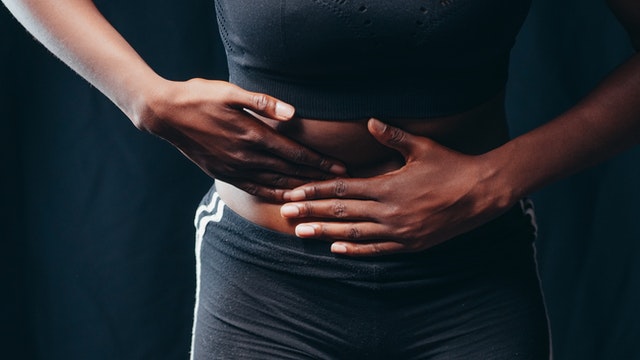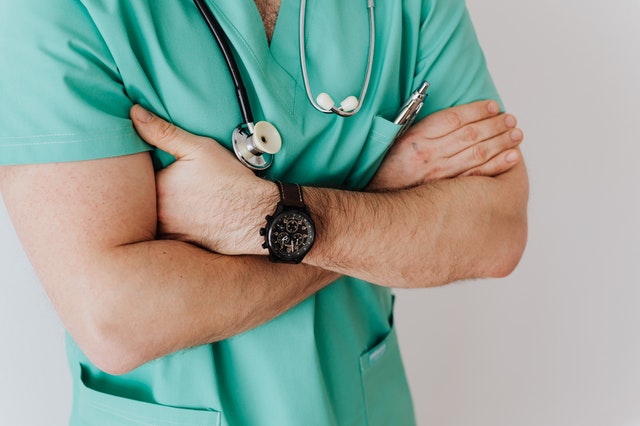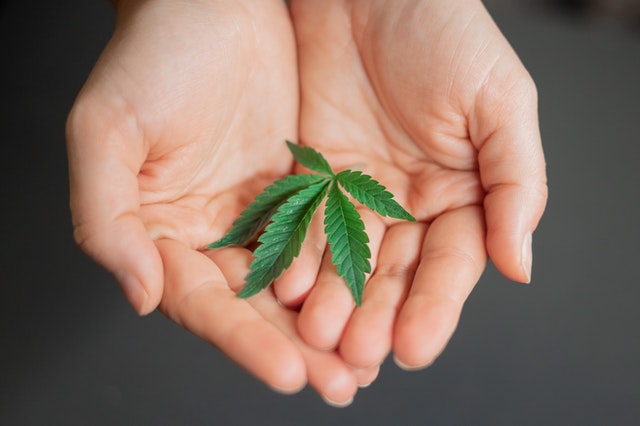
Crohn's disease is an inflammatory bowel disease (IBD) that affects the intestines. This results in the inflammation of the digestive tract. It’s a condition that is known primarily for causing excruciating pain.
So far, medical scientists have not discovered a cure for the disease. Patients depend on medicines meant to significantly reduce symptoms and potentially lead to remission and inflammatory healing. Many patients suffering from the ailment can operate normally after receiving treatment.
Given the severity of the disease's symptoms, Hawaii has approved the use of medical marijuana to treat the muscle spasms associated with Crohn's disease.
Symptoms of Crohn’s Disease
Any region of your large or small intestine is at risk of suffering the adverse effects of Crohn's disease. The effects suffered can be continuous, persistent, or encompass different segments. The condition can also be limited to the colon, which is a portion of the large intestine, in some patients.
The signs and symptoms of Crohn's disease can range from moderate to severe. They normally appear gradually, although they can also appear suddenly and without notice. There may also be times when you have no indications or symptoms.
Some of the symptoms include fatigue, fever, mouth sores, reduced appetite, blood in stool, diarrhea, and pain around the anus.

Main Causes of Crohn’s Disease
Crohn's disease has yet to be identified as having a specific cause. Several variables presumably influence its development, including inheritance and a dysfunctional immune system. Diet and stress were formerly suspected, but eventually, doctors established that these factors only lead to further aggravation of Crohn's disease but do not rank as a cause.
- The Immune System - The onset of Crohn's disease may result from induction by a virus or bacterium. However, scientists have not yet found any clear triggers.
- Heredity - Statistics indicate that most patients who have suffered from Crohn's disease usually have previously reported relatives with the disease. Thus, genes may play a role in making people more vulnerable to the disease. Most patients with Crohn's disease, on the other hand, do not have a strong genetic component of the disease.
The Risk Factors Associated with Crohn’s Disease
Risk factors for Crohn's disease are as seen below:
- Age poses a possible risk factor for Crohn's disease. Crohn's disease is identified in most persons before they reach the age of thirty. Although Crohn's disease can indeed strike anyone at any age, it has been established that it tends to be more prevalent among the young generation.
- Ethnic background. Although anyone can get Crohn's disease, white people, particularly those of Jewish / Eastern European origin, are at the highest risk. However, in North America and the United Kingdom, Crohn's disease is becoming more common among Black people.

- Background information on the family. One in every five patients with Crohn's disease usually has a family member who suffers or suffered from the condition.
- Smoking cigarettes. The most significant avoidable relative risk for Crohn's disease is the smoking of cigarettes. Smoking also induces more chronic infections and increases the likelihood of needing treatment by surgery.
- NSAIDs (Nonsteroidal Anti-inflammatory Drugs). Ibuprofen, naproxen sodium, diclofenac sodium, and others are some of the NSAIDs. Although they have not been directly linked to causing Crohn's disease, medics say they can promote bowel inflammation, exacerbating the condition.
Why Medical Marijuana Works for Muscle Spasms
The positive response of patients to medicinal marijuana is one of the reasons it’s approved for suppressing the pain of muscular spasms in numerous places like Hawaii.
Marijuana decreases inflammation, which produces muscle spasms. It leads to the lowering of the immune system's response to a muscle injury, and the system's inflammatory proteins. This is thanks to a psychoactive cannabinoid known as THC, according to a study from the University of South Carolina.
THC also has an effect on the ECS, endocannabinoid system. This web of cell receptors spreads throughout the body and regulates your perception of pain, which can be caused by inflammation resulting in muscular spasms.
Cannabinoid receptors in your ECS engage with another cannabinoid whenever a person consumes medical marijuana. The result of the binding allows THC to induce an anti-inflammatory reflex by attaching to cannabinoid receptors, which in turn inhibits inflammation and muscular spasms.

How Medical Marijuana Helps
The therapy and prescribed application of medical marijuana in suppressing muscle spasms differ.
It’s dependent on the kind of muscle spasm and the sort of medical cannabis type you're utilizing for treatment. Because of this, the pharmacist either advises that it be smoked, ingested, or administered topically.
Muscle cramps can be effectively treated with topical medical cannabis creams. It can prove helpful in numbing your spasm and ultimately help your muscle relax.
When you apply a topical marijuana cream, it’s advisable that wait for at least half an hour between applications. To cure your muscle spasm faster, you can massage the affected region or extend the muscle.
Localized treatments are also advised to boost the immune system to come up with a more efficient response to your muscle injury. It works by affecting the white blood cell's responsiveness through your ECS receptors. This enables you to recover faster and resume your everyday life sooner.
Closing Thoughts
At the Malie Cannabis Clinic, we make obtaining your Hawaii-registered Medical Marijuana Card a simple process. Once you've set your appointment, you'll be evaluated and examined by one of our qualified and experienced doctors. They will explain the benefits of using medical marijuana for your specific ailment.
Our skilled staff will walk you through the enrollment process at no additional cost. Furthermore, if you are not judged eligible for medical cannabis, you will not be charged for your appointment. Together with a highly dedicated team, these qualities make Malie Cannabis Facility the ideal medical center in Hawaii for acquiring your Hawaii-registered Medical-Marijuana card.